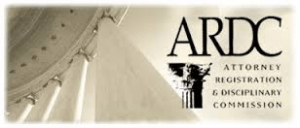 “It is strange the way the ignorant and inexperienced so often and so undeservedly succeed when the informed and the experienced fail.”
“It is strange the way the ignorant and inexperienced so often and so undeservedly succeed when the informed and the experienced fail.”
– Mark Twain in Eruption
In the world of attorney discipline, the mental state of the attorney is an important factor in determining the type and severity of discipline bar counsel will seek. When the USPTO imposes discipline, an intentionally false representation quite often leads to a suspension from practice before the Office. Depending on the circumstances, the suspension could be from several months to several years. When a patent or trademark practitioner commits multiple separate deceitful acts and lies to investigators about his conduct, the USPTO would usually not think twice about seeking that practitioner’s disbarment.
Recently a practitioner was found to have lied to his client, tried to cover up his lies, and lied to bar counsel, and yet he received only a sixty (60) day suspension. How and why this happened requires diving into the procedural nuances of multi-jurisdictional attorney discipline.
The practitioner’s ethical problems began in August 2010, when he agreed to represent an individual inventor in connection with a smart phone application invention. The practitioner requested and received $4,000 to complete and file a U.S. patent application. On September 16, 2010, in response to an email from the client, the attorney falsely represented that the application had been filed. He also said he would have his secretary forward the application serial number, but failed to do so. Those statements caused the client to believe that the patent application had been filed.
Fifteen months later, the attorney filed the client’s patent application. It is unclear from the facts why he waited so long, or what caused him to file the application after doing nothing for over one year. After filing the application, the attorney sent his client the USPTO electronic acknowledgement receipt confirming the filing of the application. The receipt, however, reflected the actual filing date. To avoid any problems with this inconvenient fact, the attorney redacted the filing date from the receipt.
The client became concerned about the status of his application. He directly contacted the USPTO and learned the application was not filed until January 25, 2012.
In a second and unrelated matter involving the same client, the attorney, in December 2010, agreed to represent the client in preparing and filing a breach of contract lawsuit. He received $2,000 from his client to pursue the claim. As of January, 2012, however, no complaint had been filed. Nevertheless, the attorney falsely told the client that he had filed the lawsuit and also represented the judge said the case was “not viable.” The attorney told the client he had been “scammed” by someone impersonating a judge. Finally, on January 30, 2012, the attorney revealed to the client the truth – no lawsuit had been filed. The client hired new counsel at additional expense to pursue the claim, which was settled.
 The client filed a grievance with the Illinois bar. This turned out to be quite a lucky break for the attorney.
The client filed a grievance with the Illinois bar. This turned out to be quite a lucky break for the attorney.
Upon being notified by the Illinois disciplinary counsel that the client had requested an investigation of his conduct, the attorney submitted a written response to the allegations. In his response, counsel made a number of false statements. He later confessed that these statements to disciplinary counsel were false.
Disciplinary counsel concluded that the attorney’s conduct violated the following Illinois Rules of Professional Conduct:
- failure to act with reasonable diligence and promptness in representing a client;
- failure to keep a client reasonably informed about the status of a matter;
- making a statement of material fact known by the lawyer to be false in connection with a lawyer disciplinary matter;
- engaging in conduct involving dishonesty, fraud, deceit, or misrepresentation; and
- engaging in conduct which is prejudicial to the administration of justice.
Disciplinary counsel recommended to the Supreme Court of Illinois a suspension of 60 days, based on Illinois precedent. Disciplinary counsel stated that three mitigating factors were that the attorney had not previously been disciplined in 15 years of practice, admitted he lied to bar counsel, and expressed remorse. No aggravating factors were identified.
The Supreme Court of Illinois agreed with disciplinary counsel’s recommendation, finding that the attorney lied to his client on multiple occasions, attempted to cover-up his lies, and then lied to Illinois disciplinary counsel about the lies to his client. The Illinois Supreme Court suspended the attorney’s state law license for sixty (60) days. See Case No. M.R. 26586 (Ill. Sup. Ct. Mar. 14, 2014).
That decision was the attorney’s lucky break. Once Illinois imposed its suspension, the USPTO was obliged to follow its rules on reciprocal discipline, codified in Section 11.24 of Title 37 of the Code of Federal Regulations. Section 11.24 sets forth a step-by-step procedure that specifically applies whenever a “practitioner” (i.e., an individual subject to the disciplinary jurisdiction of the USPTO) has been ethically disciplined by another jurisdiction.
Section 11.24(a) states that, “upon receiving notification . . . that a practitioner subject to the disciplinary jurisdiction of the Office has been so publicly censured, publicly reprimanded, subjected to probation, disbarred, suspended, or disciplinarily disqualified, the OED Director shall. . . . file with the USPTO Director a complaint complying with Section 11.34 against the practitioner . . .” predicated on the discipline received in the other jurisdiction.
Under 37 C.F.R. §11.24(b), the USPTO Director is required to issue an order to the practitioner to show cause within forty days why the imposition of the identical public censure, public reprimand, probation, disbarment, suspension or disciplinary disqualification would be unwarranted and the reasons for that claim. The OED Director lacks standing to seek a greater level of punishment than what was imposed in the other jurisdiction. Moreover, the USPTO Director “shall impose the identical” discipline “unless the practitioner clearly and convincingly demonstrates, and the USPTO Director finds there is a genuine issue of material fact” that: (1) he was denied due process in the other proceeding; (2) an infirmity of proof existed in the other jurisdiction; or (3) imposition of the same disciplinary sanction would result in “grave injustice.” 37 C.F.R. § 11.24(d)(1)(i)-(iv).
The attorney failed to file any response with the USPTO Director, Consequently, on July 15, 2014, the USPTO entered an order pursuant to Section 11.24 imposing a 60-day suspension from practice before the Office. See Proceeding No. D2014-16 (USPTO Dir. July 15, 2014).
This matter illustrates the importance of what disciplinary agency handles the investigation. The client could have just as easily filed his grievance with the USPTO instead of the Illinois bar and Section 11.24 would not have applied at all. If the OED followed its usual precedent and procedure, then it most likely would have sought a multi-year suspension or disbarment. Since the matter was adjudicated by Illinois, however, the USPTO was required by Section 11.24 to give full faith and credit to the Illinois judgment; it could not re-litigate the facts, issues, or conclusions found in Illinois. Thus the attorney received only a 60-day suspension from the USPTO in a matter that might have otherwise resulted in his disbarment.